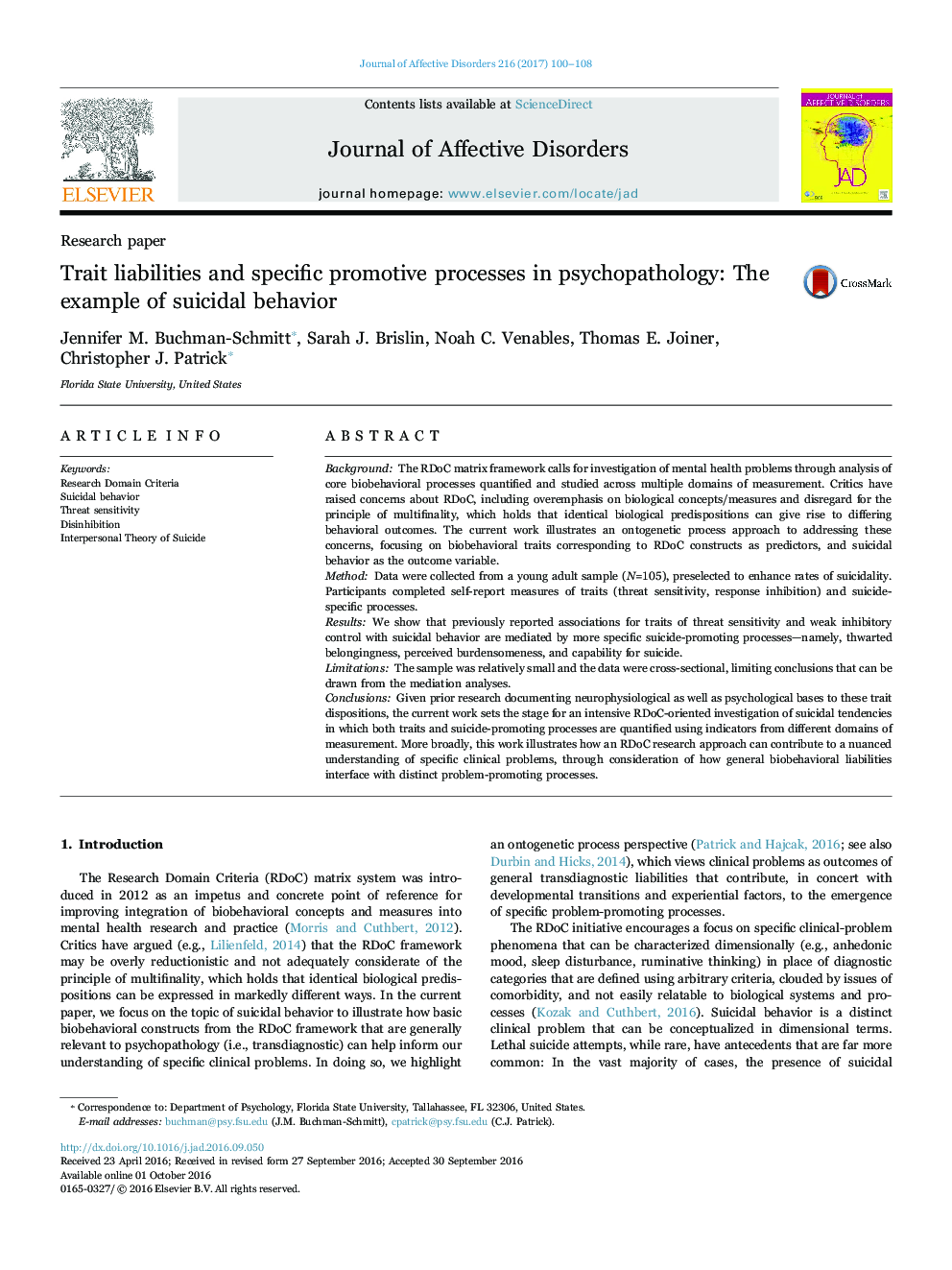| Article ID | Journal | Published Year | Pages | File Type |
|---|---|---|---|---|
| 5722311 | Journal of Affective Disorders | 2017 | 9 Pages |
â¢Focusing on suicide, illustrates an ontogenetic process approach to RDoC research.â¢Shows that proximal processes mediate relations of RDoC traits with suicidality.â¢Sets the stage for an intensive RDoC-oriented analysis of suicidal behavior.
BackgroundThe RDoC matrix framework calls for investigation of mental health problems through analysis of core biobehavioral processes quantified and studied across multiple domains of measurement. Critics have raised concerns about RDoC, including overemphasis on biological concepts/measures and disregard for the principle of multifinality, which holds that identical biological predispositions can give rise to differing behavioral outcomes. The current work illustrates an ontogenetic process approach to addressing these concerns, focusing on biobehavioral traits corresponding to RDoC constructs as predictors, and suicidal behavior as the outcome variable.MethodData were collected from a young adult sample (N=105), preselected to enhance rates of suicidality. Participants completed self-report measures of traits (threat sensitivity, response inhibition) and suicide-specific processes.ResultsWe show that previously reported associations for traits of threat sensitivity and weak inhibitory control with suicidal behavior are mediated by more specific suicide-promoting processes-namely, thwarted belongingness, perceived burdensomeness, and capability for suicide.LimitationsThe sample was relatively small and the data were cross-sectional, limiting conclusions that can be drawn from the mediation analyses.ConclusionsGiven prior research documenting neurophysiological as well as psychological bases to these trait dispositions, the current work sets the stage for an intensive RDoC-oriented investigation of suicidal tendencies in which both traits and suicide-promoting processes are quantified using indicators from different domains of measurement. More broadly, this work illustrates how an RDoC research approach can contribute to a nuanced understanding of specific clinical problems, through consideration of how general biobehavioral liabilities interface with distinct problem-promoting processes.
